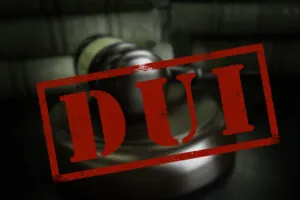
A DUI conviction occurs when an individual is found guilty of operating a vehicle while impaired by alcohol or drugs. This legal determination can result from failing a field sobriety test, breathalyzer, or blood test, indicating that the driver’s blood alcohol concentration (BAC) exceeds the legal limit.
The consequences of a DUI conviction can be severe, ranging from fines and license suspension to mandatory alcohol education programs and even jail time. These penalties aim to discourage impaired driving and promote public safety.
If you’re facing a DUI conviction, consulting a Los Angeles DUI lawyer is a wise step. A knowledgeable attorney can clarify your rights, explain potential defenses, and guide you through the legal process, striving to achieve the best possible outcome for your situation.
What Does “Driving Under the Influence” Mean?
Each state defines driving under the influence (DUI) differently, specifying what’s illegal and outlining what prosecutors need to prove for a DUI conviction. While the specifics vary, all states require proof that the person was operating a vehicle and under the influence.
California DUI penalties are designed to reflect the seriousness of these offenses.
Operating a Vehicle
Some states, like California, only convict if the vehicle is in motion. In contrast, others, such as Nebraska, penalize those in “actual physical control” of a vehicle, even if it isn’t moving. This allows law enforcement to act if an impaired driver is in a position to start the vehicle.
Under the Influence
States generally have two types of DUI laws: impairment and per se laws. You can be convicted of a DUI either for actual impairment by drugs or alcohol or for having a blood alcohol concentration (BAC) of .08% or more. Even if your driving isn’t visibly affected, a high BAC alone can lead to a DUI conviction.
What’s the Difference Between a DUI and a DWI in California?
In some states, DUI (driving under the influence) and DWI (driving while intoxicated) describe different offenses. However, in California, both terms refer to the same crime of operating a vehicle while impaired by alcohol or drugs.
Whether you hear DUI or DWI in California, they both mean a driver is accused of being impaired, affecting their ability to drive safely. This uniformity simplifies the legal landscape, treating all impaired driving with the same seriousness.
This consistent approach underscores California’s commitment to road safety, making it clear that any impaired driving, regardless of terminology, will face significant legal consequences.
What’s the Difference Between a DUI Charge and a DUI Conviction?
A DUI charge happens when an officer suspects you of driving under the influence and arrests you. This means you have been accused of DUI but have not yet been found guilty. A DUI conviction, on the other hand, occurs when a judge in court determines that you are guilty of the offense.
Facing a DUI charge brings serious consequences that can affect your life significantly. However, it’s possible to contest these charges. With the support of a skilled and assertive DUI defense attorney, you might successfully defend your case and avoid the penalties associated with a DUI conviction.
Is a DUI Conviction a Felony?
A DUI can result in either a misdemeanor or a felony conviction, depending on the circumstances. Typically, a first-time DUI offense is treated as a misdemeanor, which still carries significant penalties but is less severe than a felony.
However, if a DUI incident involves serious injury or death to another person, it usually escalates to a felony charge, regardless of whether it is the driver’s first offense.
Felony DUIs carry much harsher penalties and long-term consequences, reflecting the severity of the incident. It’s in your best interest to work with a lawyer, regardless of the type of DUI charge you’re facing.
What Impact Does a DUI Conviction Have on Employment in California?
The impact of a DUI conviction on your job depends on your role and employer. For those driving commercial vehicles, such as trucks, buses, taxis, and limos, a DUI can lead to job termination or difficulty finding new employment due to the high liability risk.
Commercial drivers:
- Automatic license suspension upon a DUI conviction.
- High liability risk for employers if employees drink and drive on the job.
- Employers in these sectors often prioritize safety and cannot afford the risk associated with an employee’s DUI record.
- Likely termination of employment following a DUI arrest or conviction.
Professionals holding licenses—such as nurses, doctors, attorneys, teachers, and real estate agents—may face severe consequences. A DUI conviction can lead to license suspension, probation, or other sanctions by the licensing board.
The specific outcome depends on the type of license, relevant statutes, and the board’s regulations. Even a first-time misdemeanor DUI can result in professional discipline or job loss.
Professionals with licenses:
- Potential license suspension, probation, or sanctions by the licensing board.
- Consequences depend on the type of license, statutes, and board regulations.
- First-time misdemeanor DUI can result in professional discipline or job loss.
To minimize employment repercussions, it’s imperative to challenge a DUI charge. Hiring a California DUI lawyer can improve your chances of getting the charges dismissed or reduced, protecting your career and professional future.
Will My Boss Find Out About My DUI in California?
Generally, the California DMV and courts do not inform employers about pending DUI cases or arrests. However, there are exceptions, particularly for jobs that require driving. For instance, trucking companies often have a “pull list” with the DMV, which means they are notified if an employee is arrested for DUI.
You might be contractually obligated to report any arrests or convictions to your employer. Review your employment contract and related documents to see if you need to disclose a DUI. If unsure, a California DUI lawyer can provide guidance.
For those with professional licenses, the licensing board typically notifies employers of DUI incidents. Additionally, employers who conduct routine criminal background checks or update driving records for commercial drivers will discover DUI arrests or convictions.
Why You Should Talk to a Lawyer
If you are facing a DUI conviction, it’s vital to seek advice from a Los Angeles DUI attorney. Even if you decide not to hire a lawyer for full representation, a consultation can provide valuable insights.
An experienced attorney can explain the specific DUI laws in your state, discuss the plea bargaining tendencies of the local prosecuting office, and outline the potential impacts on your driver’s license.
Additionally, a lawyer can help identify possible defenses to strengthen your case. Understanding your options and the legal landscape can make a significant difference in how you handle your DUI charge.






